Introduction
So you have decided to take the plunge into starting your own business and creating your own wealth? Or perhaps you are still mulling it over and are researching what it will take to turn the dream into a reality. Starting a business can be stressful, but you can mitigate that stress by having a plan and knowing the consequences that flow from each decision you make toward building your business. The goal of this article is to summarize the important things to consider before formalizing your plans.
1. Choose your entity
There are 6 types of formal business entities designated by Florida statutes: Corporation, General Partnership, Limited Liability Company (“LLC”), Limited Partnership (“LP”), Limited Liability Partnership, and Limited Liability Limited Partnership. With the exception of general partnerships, and general partners in limited partnerships, each type of business entity above protects an owner from personal responsibility for the liabilities of the entity itself. However, the degree of protection may vary. All have certain benefits and some disadvantages depending on the nature of the business venture, immediate and long term plans for growth, need for formalities and other factors. Statistically, by far the most common entities in Florida are corporations and limited liability companies.[i] With an LLC, owners are referred to as members; and with corporations, each owner is referred as a shareholder. Three important considerations in choosing an entity are tax consequences, asset protection, and management structure.
A detailed discussion on the benefits and disadvantages of each business entity is beyond the scope of this article. However, suffice it to say that if your business is a small to medium-size business with no intention of publicly trading on security exchanges, an LLC is probably the best all-around choice. This is because an LLC is disregarded as an entity for tax purposes, so no corporate taxes are paid. Additionally, each member’s protection from personal liability for claims against the LLC is arguably superior to other business entities.[ii] See § 605.0304(2), Fla. Stat. (2018). Finally, most of the statutory provisions regarding management structure in the LLC can be altered with the operating agreement, so there is significant flexibility in that regard. See § 605.0105, Fla. Stat. (2018). With corporations, by comparison, the statutory provisions dealing with management cannot be changed through the By Laws. See § 607.0206, Fla. Stat. (2018).
Note that each business venture is unique and a more detailed evaluation by a qualified business law attorney is advisable in order to help you determine which type of entity best suits your needs and short-term and long-term goals.
2. Choose your business’s name
After you decide on a name, which is of course a personal decision, check sunbiz.org to make sure the name is not already taken. You would also be wise to perform a basic internet search to explore whether your name is already being used in another state, which could lead to a court battle in the future. If you are interested in protecting your brand, we would recommend getting a trademark attorney who can assist with obtaining federal trademark protection.
Our firm assists businesses by performing a preliminary search of names in the state database. If you decide to seek trademark protection, we work with a number of excellent trademark attorneys and would be happy to put you in touch. We take the lead on creating your business, which includes bringing in other specialized attorneys as appropriate.
3. Choose your registered agent
Florida law requires you to name a registered agent for your business entity who maintains a full time office within the state. If the entity is sued, the registered agent must accept service of process on behalf of the business. Our firm serves as registered agent to businesses for a nominal annual fee.
4. Choose your tax structure
This consideration mainly applies to corporations. If your corporation has less than 100 shareholders, than you may elect to be taxed as an “S” corporation by completing and submitting IRS Form 2553. This will allow your corporation to be taxed as a pass-through entity, allowing you to avoid paying corporate taxes in addition to individual taxes.
This consideration may also be important to an LLC or LP that wishes to be publicly traded in securities exchanges. Note that federal law prohibits LLCs from being publicly traded. A way around this prohibition is for the LLC to be taxed as a partnership and structure itself as a Publicly Traded Partnership. The PTP must meet the requirements of 79 U.S.C. 7704(c).
5. Choose your management structure
Management structure will vary depending on the type of entity. With the two more common business entities – corporations and LLCs – the management structure is determined both by applicable statutes and the appropriate entity agreement. With LLCs, the operating agreement can determine the management structure, including by stating whether the LLC is member-managed or manager-managed. With corporations, management is determined by applicable statutes, the By Laws and/or the shareholder agreement. Contact our firm to help you design a management structure that best fits your business model and which is consistent with Florida law.
Conclusion
We are happy to help you construct a plan that is consistent with Florida law and which is both suitable and adaptive to your unique business model over the long term. Have an overall plan, and implement it with confidence. Call or message us when you are ready to get moving.
[i] https://dos.myflorida.com/sunbiz/about-us/yearly-statistics/
[ii] Single member LLCs are not bright line asset protection vehicles as against personal liabilities of the member. A creditor can take over the member’s interest in the LLC by judgment of the court to foreclose on a member’s unpaid debt. See§ 605.0503(4), Fla. Stat. (2018). This threat presumably and similarly exists with single-shareholder corporations in light of the Florida Supreme Court’s decision in Olmstead v. Federal Trade Commission, 44 So.3d 76, 83 (Fla. 2010).


